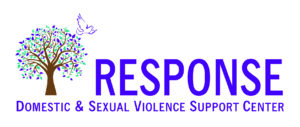Services
- 24 Hour Information and Support Line 1-866-662-4220
- Safety Planning
- Court Advocacy
- Hospital Accompaniment
- Emergency Shelter
- Community Education & Training
Services are provided regardless of gender, age, health status, physical, mental or emotional ability, sexual identity, sexual orientation, socio-economic status, race, national origin, immigration status, or political or religious affiliation.
24-Hour Support Line
1-866-662-4220
Free and Confidential Support
When you call our support line, you will be connected with a trained advocate.
Calls made to our support line will be picked up by our answering service. You will then receive a call from a Response advocate within 10 minutes. If you don’t feel comfortable leaving your name and phone number with the answering service, you can request to be patched directly to an advocate.
